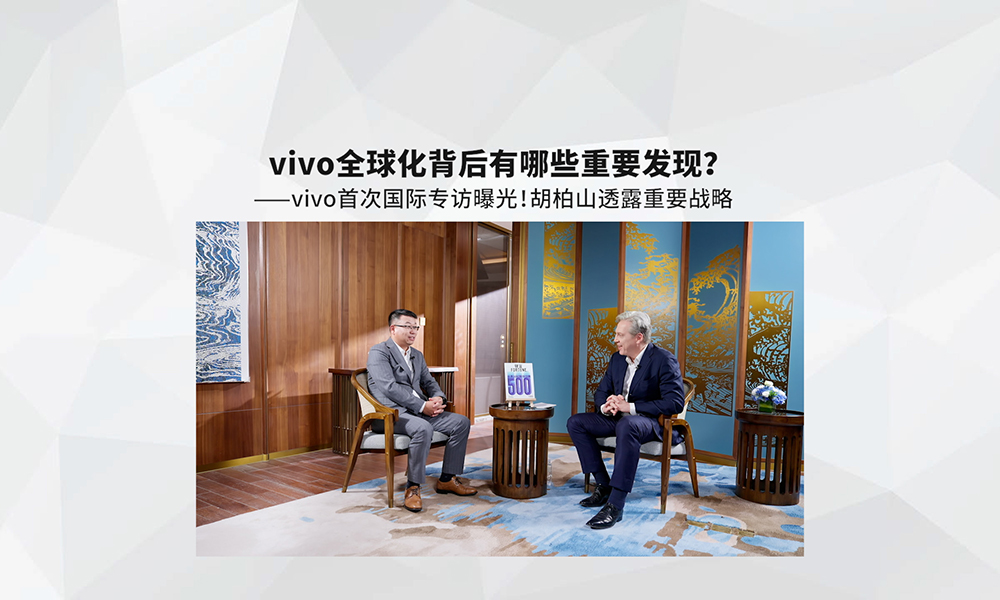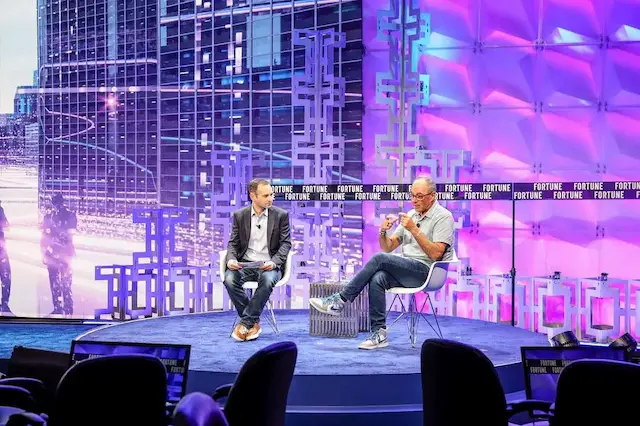人工智能的直觉靠谱吗?

|
直觉并不总是正确,但当每次商业领袖被问及如何决策时,他们总会提到直觉的作用,即便在高级分析工具盛行的当下也是如此。 今年7月11日,在旧金山,由前谷歌员工创立的初创企业Node发布了所谓“下一波人工智能浪潮”:人工直觉。Node视之为划时代的工具。 Node的创始人及首席执行官法伦·法塔米表示,团队能够教会计算机产生人类独有的知觉。她还表示,计算机编程的直觉可以帮助商业领袖对未来做出更好的决策,甚至可以预测出员工想跳槽。 《财富》杂志与法塔米就人工直觉话题进行了对话,也讨论了计算机与直觉的联系能否比人类更紧密。 《财富》:人类的直觉通常来源于过往经验。如何才能在某行业引入人工直觉,并让人工直觉具备人类积累多年才能够达到的智慧呢? 法塔米:人工直觉与大脑相似,能够分析大量不同的信息,区别在于人工直觉可以分析的信息规模更大,还能够从不同的结果中学习,然后基于结果进行预测。随着时间的推移,人工直觉也会越发智能和准确。 只需提供你所关心的人员或公司的样本数据集合,系统就能够从中提取预测所需的信息并构建模型,生成高度精确的预测结果。有了人工智能,人们不再需要定义什么是“最优解”,人工智能会通过查看样本集合,自主分析数据,自动给出答案。 人类的直觉有时都不准确,为什么还要听计算机的直觉呢? 关于人工直觉的问题可以这么理解:我们每天做决定时都会用到直觉,对吧?要不要采访,晚餐吃什么,相亲时要不要带两个朋友。在这些情境中我们都会用到直觉,具体情境决定了最终做出怎样的决策,以及要考虑哪些因素。随着时间的推移,人的直觉会不断发展提升,Node的人工智能也一样,可以从结果中不断学习不断进步,而且不只针对个案,使用该平台的每家企业和个人用户都能够从中受益。 企业如何使用人工直觉协助决策?能够学到什么? 人工直觉可以为每个Node赋能的应用、用户和案例提供独到的智能决策。例如,新客户很可能在哪?哪些潜在客户可能与你做一笔大买卖,或者带来新机会?又或者哪名员工可能会离职。 作为经理,了解关键员工会不会离职是一项非常重要的工作。越早知道员工有离职想法越好,知道得越早就能够采取措施避免走到离职那一步。人工直觉也可以帮助企业决定投资哪家初创公司。 你跟一些客户合作进行了测试,效果如何? 从商业成果的角度来看,我们发现该系统不仅能够准确预测并找到更多的潜在客户,例如有可能迅速转化的潜在客户,还可以帮助客户找出传统策略发掘不了的新市场。这就是人工直觉技术的力量。其本质就是将数据转化为决策,既能够根据特定背景分析具体案例,又可以吸取终端用户最成功的直觉经验。 作为预测行业的从业者,你对企业使用人工直觉的前景有什么看法? 现在的情况是,企业要么创新,要么衰亡。无论是企业产品及核心价值层面,下一波大型科技企业都会将人工智能放在首位。对于死守传统系统小修小补、几乎无法适应而难以跟上节奏的企业,只有投入数百万美元的资金及多年的时间才能够避免从科技战争中淘汰出局。 我们在做的是帮助企业利用现有资源释放自身能力。每个工程师都能够使用Node构建最先进的预测模型,从而实现其应用最初想实现的目标。 我们已经习惯了使用人工智能助手,例如Siri和Alexa。在您看来,未来人工直觉会不会走进人类日常生活,协助决策或提醒某些事项? 下一波创新浪潮将来自企业。这也就意味着,未来每个人都可以拥有自己的人工直觉助手,助手的任务就是帮助人们发现机会,甚至在没有想起来搜索的时候就把机会呈现在眼前。可能是给“这本书能够改变人生,应该读一读”,也可能是“这个工作机会不错,值得一试”,我认为这是长远发展的方向,也能够切实改善每个人的生活。(财富中文网) 译者:Charlie 审校:夏林 |
Gut feelings aren’t always correct, but ask any business leader how they make decisions, and intuition almost always plays a role—even in the age of advanced analytics. Positioning itself as a tool of the times, Node, a San Francisco based startup founded by an ex-Google employee, announced on July 11 what it calls the next wave of artificial intelligence: artificial intuition. Node founder and CEO Falon Fatemi says her team has been able to teach a computer the uniquely human sensation of having a hunch. Not only that, but she says that computer-programmed gut feelings can help business leaders make better decisions about the future, even predicting when an employee is looking for a new job. Fortune talked to Fatemi about artificial intuition and whether a computer can be more in touch with its intuition than humans. Fortune: When humans have a hunch, it’s usually based on past experiences. How can you bring artificial intuition into a business and teach it the same wisdom that humans who have worked there for years already have? Fatemi: It is kind of like how our human brains can analyze a lot of different points of information, but this thing can do it at scale, learn from those outcomes, and then drive predictions. It just gets smarter and better over time. All that it requires is a set of examples of people or companies that represent the outcome that you care about. That number of examples can help the system pick up enough of a predictive sniff to then build a model and be able to generate predictions of a very high accuracy. Artificial intelligence does not require you to try and define what “best” means. It figures it out by just looking at a set of examples and analyzing that data in an autonomous fashion. Human intuition isn’t always accurate. Why should people listen to a computer’s gut feeling? The way to think about artificial intuition is like this: You use your intuition every day to make decisions, right? Whether you should take that interview, what you should eat for dinner, whether you should set up two friends on a blind date. You’re using your intuition in all of these situations, but the context of the situation determines which decision you make, and what factors drive that decision. Just like your personal intuition evolves and improves over time, Node’s AI learns from the outcomes it drives to get better—not just for each use-case, but for each company and each user that leverages the platform. What are some ways businesses can lean on artificial intuition to help them make decisions? What can they learn from it? Artificial intuition makes intelligent decisions that are unique to each application, user, and use-case that’s Node-powered. So for example, who your next customer is likely to be; being able to have the Node system be able to show you which of your prospects are likely to result in that next big deal or opportunity; or which employee is likely to leave their job. As a manager, it’s really important to know if a key employee might be leaving the job. You’d want to know that today so that you could do something today to prevent that outcome from happening, or perhaps which new start-up that you should invest in. You have been testing this with some customers. What have you learned from the results? What we’ve seen, from a business outcomes perspective, is the system is not only able to predict accurately and find more prospects—such as those best prospects that are likely to convert very quickly—but the system has actually been able to navigate and identify new markets of opportunity that were previously untapped by those customers using traditional heuristics-based methods. And that’s the power of this technology. It essentially turns data into decisions—both the context-specific that it’s analyzing within an application, and also learning from the intuition that the end-users have as to where they’re most successful. You’re in the business of making predictions. How do you see companies using artificial intuition in the future? We’re in a situation where enterprises need to innovate or die. The next wave of big tech companies are all going to be AI-first, both in terms of their products and their core DNA. For the organizations that frankly cannot keep up because they built legacy system on top of legacy system, and their ability to adapt is frankly near impossible—they’re going to spend millions of dollars and years just trying to engage in this talent war. What we are doing is we are democratizing the ability for all of these companies with their existing resources. Any engineer can [use Node] to build a cutting-edge prediction model around the business outcomes that their applications were initially built to drive. We are already used to using artificially intelligent assistants, like Siri and Alexa. Do you envision a future where artificial intuition might also help us make decisions or warn us about something in our personal lives? The next wave of innovation is going to come from the enterprise. What that’s going to mean is that in the future, everyone should have their own artificial intuition agent whose job is to identify opportunities to you and put those in front of you before you even know to search for them. Whether it’s “here’s the next book you should read that is going to change your life” or “here is the next job opportunity you should take a look at,” I think that’s longer term where this can go, and really empower all of us. |










